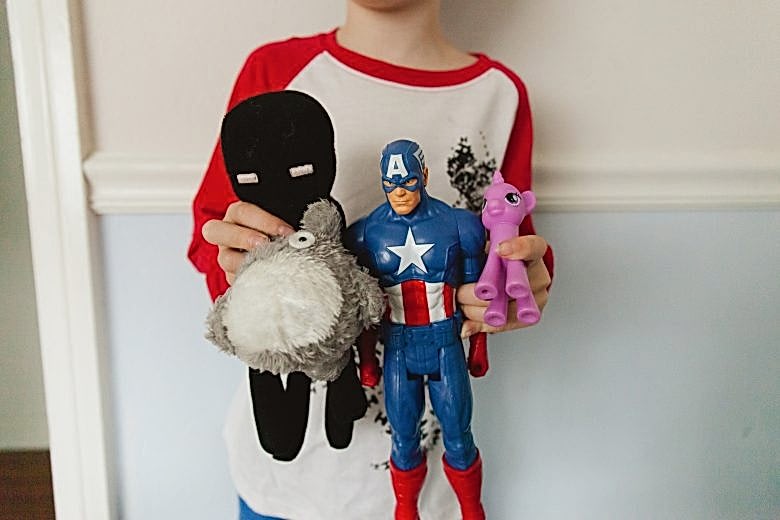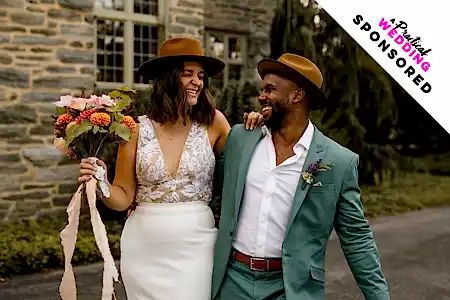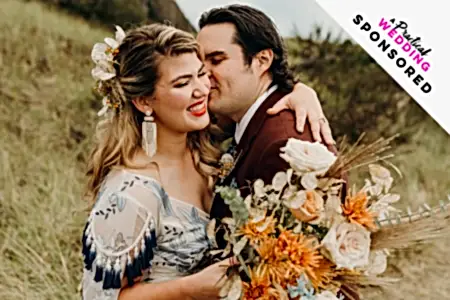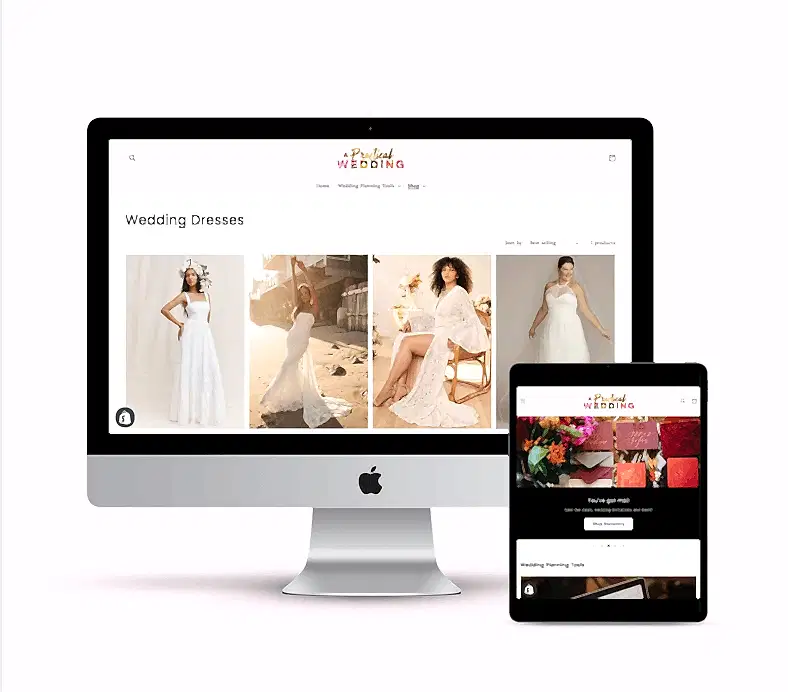
You hear it a lot: giving birth is a transformative experience. They say it’ll change you, that you might not even recognize yourself after you become a parent. And to a degree, this is true: you try adding another human life to your household and see if you can keep the boat from rocking. But at this point in the game (nearly seven years after my son was born), I’m much more interested in how parenting helped me grow—and specifically how becoming a parent to a son turned me into a capital F, don’t engage me unless you’re prepared to be educated, Feminist.
It’s not that feminism was particularly new to me, or that a child crawling out of my uterus made something click. I already knew that feminist co-parenting would be important in our family, and as the offspring of two sociologists, I knew our child would receive his or her fair share (and then some) of High Level Discussions as they pertained to sexism. We didn’t find out the sex of our baby, and I spent a lot of time imagining life with a daughter and life with a son. Both included heavy doses of glitter nail polish (which our son still rocks), superheroes, video games, and every color of the rainbow.
My son’s birth stirred up something in me, something that took awhile for me to even recognize, let alone put a name to. Sure, my husband and I met in a Gender Studies class, but I wasn’t parading around talking about feminism all the time. When my son was born, the issues I spent a lot time working with, for, and talking about were political—I was pregnant during President Obama’s first presidential bid, and was entirely wrapped up in combating the racist rhetoric that seemed to engulf my home state (Alabama) at the time. It’s not that feminist issues didn’t matter, they just weren’t my everyday focus.
Fast forward a few months, and I started getting pretty mad. Not screaming in your face angry, but… frustrated by seemingly little or unimportant things that actually mattered a lot. Take, for example, the way our son’s first pediatrician always spoke to exclusively me, even when my husband was at the appointment and fully prepared with everything the pediatrician needed to know. Or how people would ask if my husband was babysitting while I worked, or treated me like the world’s worst parent when I went out of the country for a week with a friend, leaving my two year old at home.
It was rocky at first, and I quickly realized I couldn’t abstractly rant about how white men have wrecked the world because I’m married to a white man and raising a white man. Instead of ranting, it became increasingly obvious to me that there were going to be plenty of Things We Needed To Talk About. Things like consent, workplace imbalance and wage gaps, and that it’s ok if his partner is smarter than him. I didn’t know that having a son would mean that I would need to talk about this incredibly, painfully early. As he’s been aging, I’m realizing how much it matters to me that he learns those things, and that I be the one who tells him about them.
We don’t chase girls to make them love us
My son started preschool when he was three and a half, and the first thing he realized about preschool was that it would put him in close proximity with the opposite sex. Before I dive in, I want to put it out there that we’ve never been the type of parents who make a big deal of boys or girls, and we’ve always wanted our son to feel free to be attracted to ANYONE that he feels attracted to… but dude has tended to gravitate to females. Ok.
Within a week, we were hearing from the teacher that while our son was super engaged in preschool and doing alright, there were a few… social cues that needed some work. The biggest? Trying to kiss every single girl that came anywhere near him.
Our household is pretty heavy on the love. Emotional, mental, physical: my husband and I aren’t making out all the time in front of our son, but he sees us hold hands. He sees us kiss one another, quick kisses before this or that. He hears us tell one another and him about all the love we have for each other, and we all hug and kiss and just crush on one another as much as possible. It had never occurred to us to teach our son about how we express our love to OTHERS, because he wasn’t expressing it to anyone else. Cut to preschool, where he’s spending most of his time figuring out to hold this girl’s hand or that girl’s, where he’s chasing the girls who are running away, where he’s pressing himself up against girls because he just can’t deal with how amazing he thinks they are.
We had a bunch of choices here. We could have played it off as, “Oh, it’s all sweet and innocent” (and it was). We could have gotten mad and angry (and we didn’t). Instead, we started what has turned out to be a long, long string of conversations about how forcing yourself on another person because you think you love them isn’t what you do. It turns out there’s no real right or wrong way to introduce the concept of “no means no” to your son, it just matters that you do it.
don’t lie to yourself because that’s what you’re “supposed” to do
My son and I were at another movie when we saw the first preview for Frozen. It was the super cute one, with Olaf and Sven are chasing Olaf’s carrot nose around on a frozen lake. He was immediately hooked, and gleefully insisted that we had, had, had to see it. Movies are huge in our house, and going to see them is something my son and I share, so I naturally agreed.
Much like many, many other children around the world, my son was immediately in love with Frozen. He was so in love that he insisted that we stay and watch the entire closing credits (this is still something he asks to do) so he could listen to the song and bask in the post-Frozen glow. He also asked if we could see it again, as soon as possible. I loved that he loved this movie about two women and their bond, so we did.
He openly loved the movie for months afterward. He would belt out “Let It Go” on the playground, sing it at the grocery store. He squealed over Frozen gear and happily gushed to anyone, anywhere about how much he loved it. And then all of the sudden, it stopped. Someone at school decided that Frozen wasn’t cool anymore (mostly because his older sister still loved it so much), and that was, apparently, it.
That didn’t mean that he stopped talking about it at home, and it didn’t mean that he never asked to watch it again (because he did). It just meant that when he was at school, when his friends were over playing, or when we were out in public he would act like he just couldn’t stand anything to do with Elsa, Anna, and the gang. And sure: it’s a movie? So what? And I also realize that this is what kids (and many adults) do: we want to fit in, so we lie. But I hated that he felt like he had to hide something he truly loved because someone else might make fun of him.
So that started a new set of Big Discussions, and this time they were about the importance of honoring who you are. I feel like a lot of people—men, women, everyone, all of us—spend a lot time dishonoring ourselves. I want to raise a boy who grows into a man who is a generous, kind, and supportive partner (if he chooses to be a partner at all), and I think the first step is raising a boy who likes himself, and who doesn’t hide from who he is, who doesn’t belittle others because he’s not sure of himself.
manly men include girls in their games
As with most (all?) things parenting, this topic, the idea of being a feminist and raising a feminist, never dies. Our current struggle concerns the group of kids my son spends a bit of time with each week. There are three boys and one girl, and the boys have lately been leaving the girl out of their games.
At first it wasn’t on purpose, it just.. happened. The boys wanted to pretend to blow things up, the girl was like, “Guys: no.” So they just stopped asking her to play, but then the adult supervising quickly realized that this meant she just wasn’t playing with anyone when it was time to play. So our latest Big Discussion is how about men—the real ones, the kind ones, the ones who are doing this thing alongside the women they’re around—don’t leave women out of their plans. That including girls in your games (especially the only girl) is important. We’re spending some time talking about how there’s no way to know what a girl will bring to a game if you don’t invite her in the first place, and that making false assumptions based on stereotypes isn’t how we roll.
bringing it all back home
I recently read something along the lines of this: we learn 95% of what we teach. Never has this been more clear to me than working through many of the things we’ve worked through as parents. All the conversations I’ve had with this little dude, this guy who likes to pretend to blow things up while rocking glittery nail polish, have made me realize how much this stuff matters to me. I’ve grown as a mom, as a wife, as a human, and one of the greatest gifts our parenting journey has given our marriage is that my husband has also grown as an individual and a partner. He’s now infinitely more comfortable with who he is, and how he defines masculinity for himself—he’s no longer hung up on how others perceive him or what “they” think he should be, he’s happy being the exact kind of man that he is (because remember: we don’t lie to ourselves because we’re “supposed” to). This, in turn, makes our marriage a more equal and truly joyous relationship… plus it’s just nice. Thanks a bunch, Feminism.






